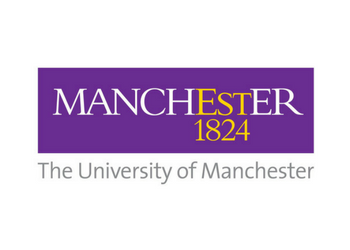

The University of Manchester
speciality: Communication
What is a Communications degree?
Communications is a universal degree, which explores the traditional forms of communication such as verbal, physical, visual and written communication but also extends beyond that to cover mass communication and social media. There are different types of communications degrees depending on the degree level.
Overall, Communications focuses on teaching effective communication through social media, web, print, mass media and verbal communication. However, there are two types of Communications degrees that exist. For instance, a Bachelor of Arts in Communications in the US is focused on preparing students for careers that are connected to writing, marketing, promotions, journalism and public relations. In contrast, Bachelor of Science in Communications is dedicated to the technology used in the science behind modern communication and prepares students for careers in production or sound engineering.
A Communications degree teaches students about how media and communication influences cultures, societies and people’s identities. It involves a significant amount of critical writing and research and covers different disciplines such as journalism, public relations, entertainment production, marketing, event planning and so many more disciplines, which are somehow connected to exchanging information and conveying messages. There are also different specialization options associated with this degree, including political communication, mass media, journalism, health communication, etc.
It is worth noting that a Communications degree has many intersection points with psychology, sociology, linguistics and in some cases politics.
Benefits of a Communications degree
The main benefit of a Communications degree is its universal nature. It applies to almost any subject or professional setting. For example, some of the top careers in the field of Communications include announcers, art directors, editors, broadcast and sound engineering technicians, reporters, correspondents, broadcast analysts, technical writers, writers and authors, interpreters, translators, etc. Therefore, it keeps students’ career options open and doesn’t require them to have a predetermined career path that they want to follow.
Communications degrees prepare students to make an impact from the start of their careers unlike other degrees, which require further training. This is possible thanks to the multitude of professionally accredited degrees in Communications, which develop students’ abilities based on the established standards in the field. Moreover, there are many Communications courses, which offer work placement opportunities that enable students to gain the required professional skills before they have even started their career.
Another benefit associated with Communications degrees is the fact that they develop students’ written and verbal communication skills significantly.
A major advantage of Communications over other degrees is that in most cases there are no prerequisites required to study Communications.
Communications degree structure
The duration of a Communications degree varies depending on the country and degree level. For example, Higher Education Institutions in the UK offer 3-year Bachelor’s courses. In some cases, the course may extend to four years if students are given the opportunity to spend a year abroad or in industry between the second and third year through a sandwich course. Bachelor’s degrees in Communications in the US usually take around four years to complete.
Over the duration of a Bachelor’s Communications degree, students are expected to learn and be able to apply the established communications theories by developing the technical skills required to work in a professional setting. In the first year of their studies, students learn predominantly how media and communication influences cultures, societies and people’s identities. Optional modules may introduce them to professional communication, journalism, documentary, film-making, marketing, etc. In addition to the introductory topics, this degree allows students to learn about more complex areas of communications such as interpersonal relations, brand management and linguistics at a later stage. For instance, the second and third years enable students to get a deeper understanding of theoretical concepts related to media and culture and develop practical skills in research and communications. Additionally, students may have the opportunity to take optional modules and pursue their interests in different areas related to Communications such as gender, race, youth, culture, digital media, political communication, public relations, etc.
The most common duration of a Master’s degree in Communications is between 1 and 2 years depending on the mode of study (full-time or part-time) and country.
PhD and MPhil degrees in Communications require students to dedicate anywhere between 3 and 6 years to their studies depending on the mode and country of study.
4 Student Reviews
Filter reviews-
International Politics ...19 Nov, 2022
 StudentGBNot a priority
StudentGBNot a priorityI loved my time at the University of Manchester, I cannot fault the teaching staff or the content of my course, nor can I complain about the Students Union or extracurricular activities. The one thing which soured my wonderful experience is how the University and it’s policies affected students, it is clear that us and our wellbeing were not their priority. Over my time at the University of Manchester there has been at least 3 major strikes by staff, which in my personal experience have been backed completely by the students, we support the strikers and want to see our teachers, lecturers and those employed by the university paid a fair wage, with a fair pension and job security. The University of Manchester continuously over my 4 years at the university failed to do this, and therefore failed the students too. Not only this but a series of policies created by the university during the 20/21 academic year saw an increased police presence on campus, with students being subjected to intimidation and distress within the place they were calling home. This is wholly unacceptable and went on for far too long, until the struggles of these students finally received media attention. It is clear that the university was out of touch with how their policies were affecting students, and they didn’t care. Finally the vice chancellor Nancy Rothwell is not supported by the majority of the student body, and in a referendum held in 2021 89% of voting students declared they had no confidence in her leadership, following on from the University staff voting the same. Unfortunately nothing has changed because despite this vote of no confidence being the first in the Universities 200 year history, the university itself refuses to abide by the will of the students and change with the times.
I really enjoyed my time at the University of Manchester despite my many qualms with the administrative departments, it is clear how deeply many of the academic staff care both about their students and their subjects, by how they choose to go above and beyond what is required, yet the behaviour of those in charge of the university and their refusal to change has left a slightly sour taste in my mouth.
Don’t let this stop you from applying or even going to UOM just keep in mind that to the University leadership, you don’t matter that much.
View moreProgramme: International Politics and CultureDegree: Bachelor'sGraduation: 2022Delivery Type: On CampusCampus: Manchester -
Communication and ...19 Nov, 2022
 StudentAcademic review
StudentAcademic reviewThe university is well set, the interesting thing for me is how it’s keeping up with educational technology. For my course, there’s a learning management system which is set up as per students needs.
View moreProgramme: Communication and EducationDegree: Master'sGraduation: 2023Delivery Type: On CampusCampus: Manchester -
International Disaster ...22 Jun, 2020
 StudentFlexibility with assessments and student care, especially with mental health
StudentFlexibility with assessments and student care, especially with mental healthBig uni with a wide culture and lots to do
View more
The staff really care for you and are happy to help with any problem, if it be assessment related or some more personal matters
The nightlife is really good and the potential for meeting friends is great too
Would recommend for undergraduate definitelyProgramme: International Disaster ManagmentDegree: Master'sGraduation: 2020Campus: Manchester -
Creative Writing19 Jun, 2020
 StudentCreative Hub of Manchester!
StudentCreative Hub of Manchester!The University of Manchester is an exceptional institution, prioritizing the success and happiness of its students to ensure a welcoming and productive environment for all. As a MA Creative Writing student, I have been fortunate enough to receive teaching from a range of talented and experienced published poets and authors, all of whom have offered invaluable mentorship throughout my degree. Aside from the excellent learning facilities on campus, the university also encourages students to interact with the city itself. The Centre for New Writing, my MA faculty, organized free tickets to weekly events with renowned writers, encouraging everyone to attend the readings and interact with industry figures. Before applying for this course I was extremely encouraged by this opportunity and it was great to meet successful writers from outside the university. The modules were taught as workshops and I think my favourite element of the course was the ability to discuss each other’s work in an informal environment, receiving weekly feedback from my classmates and tutors. I would definitely recommend The Centre for New Writing at The University of Manchester as it has allowed me to improve as a writer and gain invaluable industry knowledge.
View moreProgramme: Creative WritingDegree: Master'sGraduation: 2020Campus: Manchester

